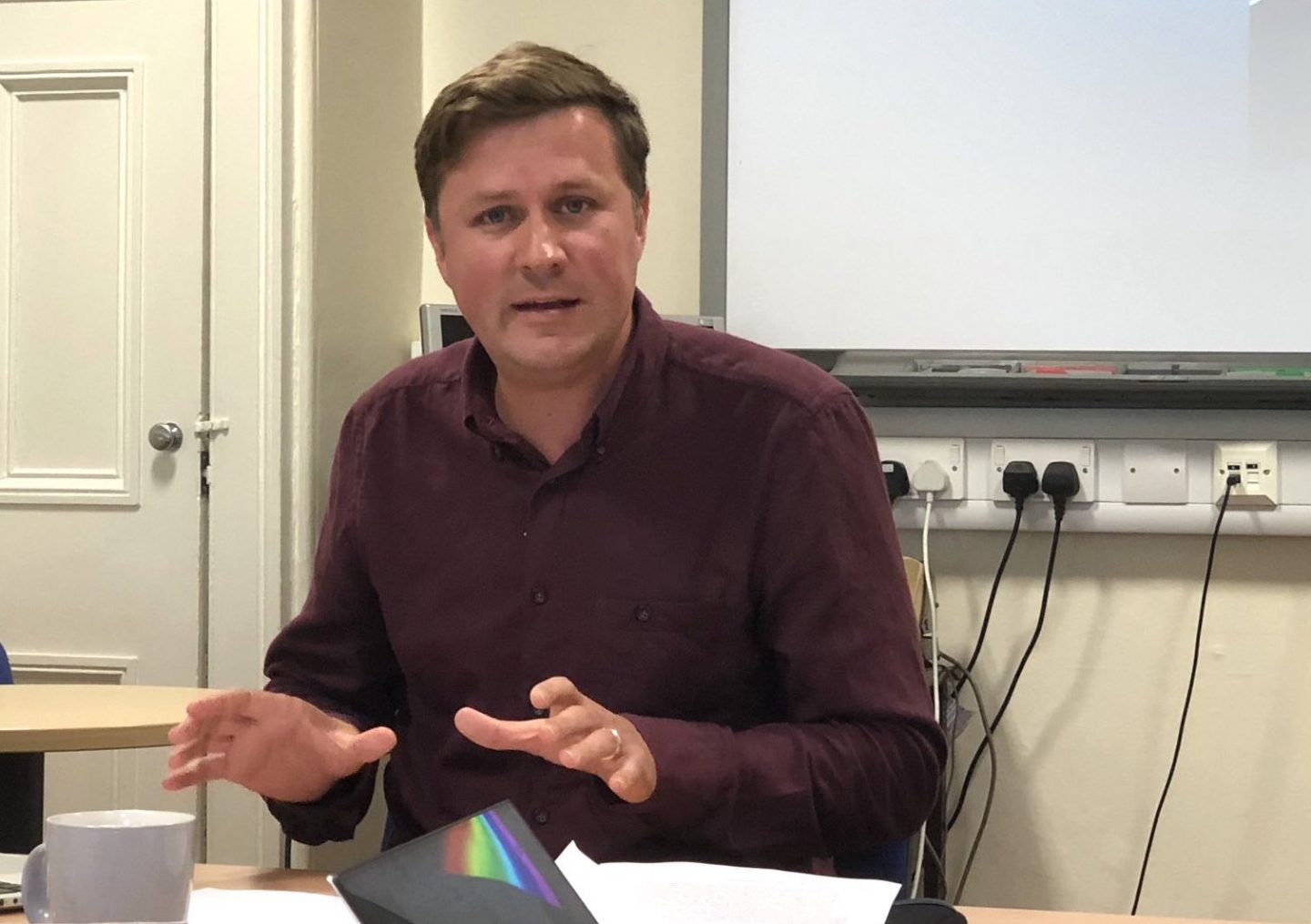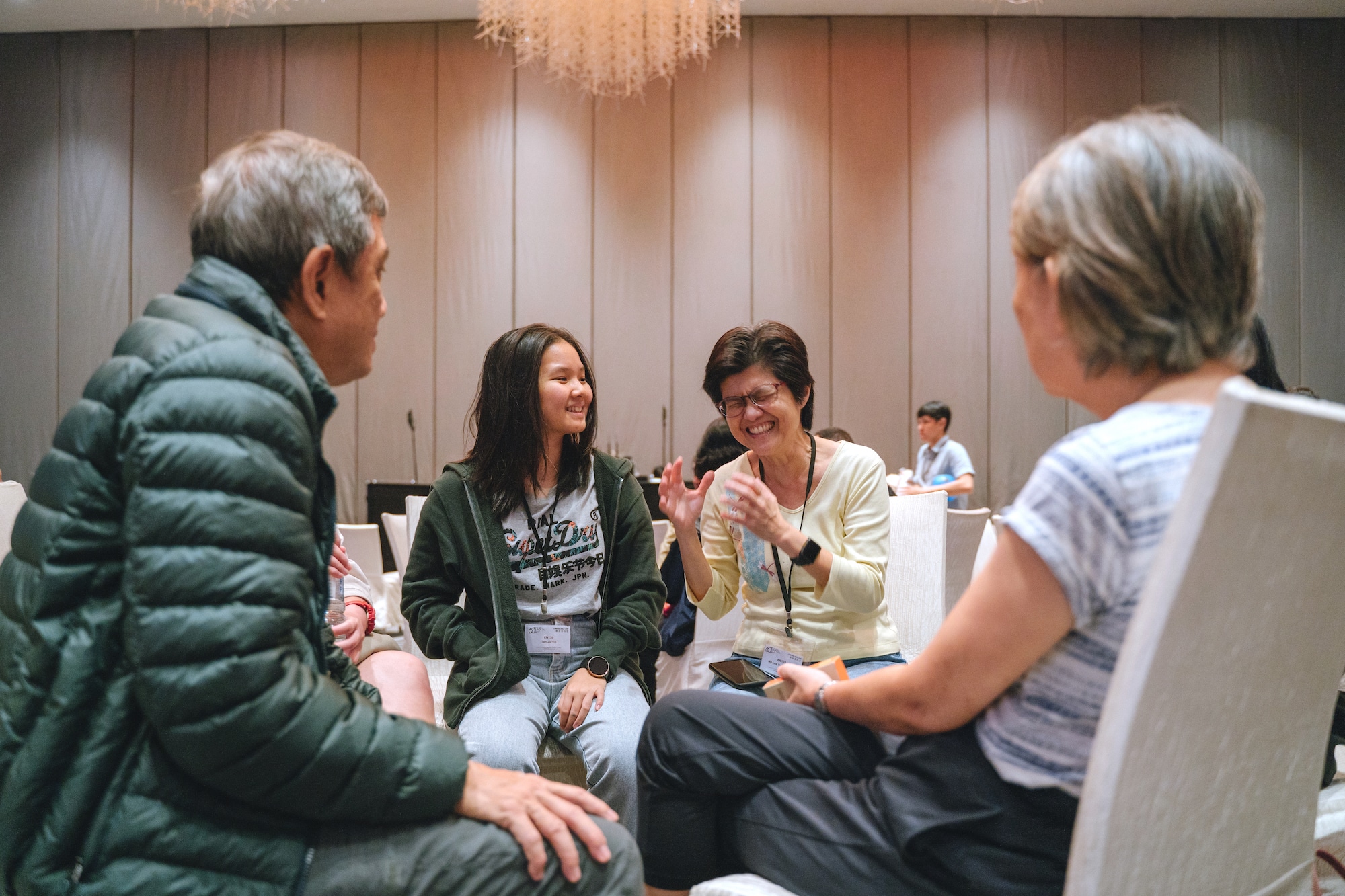What happens when faith is filtered through social media?
by Tan Huey Ying // October 15, 2019, 4:09 pm

"We need to understand how faith, filtered through new media, is influencing the communicator and receiver, and also the message,” said Jonas Kurlberg. Photo by Uriel Soberanes on Unsplash
“Technology is merely a tool” is a common refrain; yet its pervasiveness our lives means that technological artefacts are not just tools but are, in fact, active agents of change, shaping and influencing behaviour.
“Digital innovation is happening at such a frightening pace, but we seem to be adopting it seamlessly and without much reflection,” said Jonas Kurlberg, who is part of Durham University’s Centre for Digital Theology in the United Kingdom and a speaker at the ChristianX 2019: The Church in a Digital World conference this week.
Kurlberg, 41, posits that, as Christians, awareness of how the cultural context influences us is important. “I believe that we need to understand how faith, filtered through new media, is influencing the communicator and receiver, and also the message,” he explained.
Fragmented conversations
Social media is a good example of how change has occurred: The very design of the platforms directs people to communicate in certain ways.
Twitter, for example, limits tweets to 280 characters. You could tweet a whole article in short messages but it would not be very practical – nor a good use of the platform.

When Twitter first launched in 2006, the uniqueness of the platform lay in its 140-character limit that forced users to keep their posts short and sweet. But Twitter doubled the character limit in 2017, noting that a longer character count would allow users to express more without running out of room to tweet. Photo by Marten Bjork on Unsplash.
Today, conversations have become more fragmented and we have less patience to read long and in-depth articles or books. Some research even suggests that these patterns of fragmented media consumption find an equivalent in Christians who read the Bible digitally.
Another example of how social media is changing culture is the emphasis on images. Kurlberg observed that this emphasis has, in turn, led to an increased focus on the body and a boom in gyms, cosmetics, fashion and an obsession with celebrity culture.
In our everyday
One of the digital trends that Kurlberg identified is the increased emphasis on video content, adding that a recent report from the Oxford Internet Institute suggests that video amounts to 70% of all internet traffic.
Social media is a good tool to facilitate inter-generational learning.
While it is partly driven by the market as people are more likely to spend time engaging with an online video, Kurlberg said there is also an obvious appetite for this form that comes from user behaviour.
TikTok, the popular Chinese social media platform, is symptomatic of this. “This platform on which users (mostly teens) share short videos is emerging as a real challenger to Facebook’s various platforms and YouTube.”
The internet is no longer something that we can think of as happening “out there” in cyberspace or virtual reality.

Jonas Kurlberg will be speaking on The digital world: Theology, influence and impact at the ChristianX 2019 conference this week. Photo from Durham University’s Twitter feed.
Referencing anthropologist Christine Hine who argues the internet is becoming more embedded, embodied and everyday, he cautioned: “That means that for most people, the internet is taken for granted and integrated in our everyday practices. Digital technology is revolutionising our societies and we cannot ignore this fact.”
Not all bad
But it is also important to observe that the internet is, to a lesser degree, no longer the free and unregulated space it once was, Kurlberg added.
Whether it’s government censorship, surveillance or manipulation by algorithms and persuasive technology designed by the tech industry, the internet is increasingly a controlled space.
“Digital technology is revolutionising our societies and we cannot ignore this fact.”
He said: “Digital technology is a very powerful tool for surveillance and manipulation which can be, and is being, used by authoritarian regimes.
“Online censorship is already infringing on religious freedom in some countries.”
Social media is not necessarily bad, however. Kurlberg noted that age is not a barrier to using social media, citing the example of his mother, who is the “most active” social media user in the family of six.
Kurlberg believes that social media is a good and timely tool to facilitate inter-generational learning. “Perhaps millennials who live in an online world where relationship can be more transient can learn from the older generations what committed relationships look like, even when they are formed online.”
A voice in the debate
“On a personal level, the question that drives me is how do we faithfully live as Christians in the here and now,” said Kurlberg, who leads a team in developing the Master of Arts in Digital Theology at the university.
Armed with degrees in theology, sociology and literature, Kurlberg became interested on studying Christianity and the internet after getting involved in a research project that used Big Data to understand how religion is expressed in social media.
“How do we faithfully live as Christians in the here and now?”
“I believe that theology should make contributions in public debates about important issues facing our societies,” he affirmed. “Social media is one of those areas which are widely discussed at the moment, not least for its impact on politics.
“It’s crucial that there’s a theological voice in this debate.”
But most importantly, ignorance in the Church cannot lead the way forward. And many churches around the world are now rightly asking how these new technologies can be used for discipleship, worship and missions.
Kurlberg said: “We are called to have a prophetic voice in society and that involves discerning how to use technology so well that it leads to human flourishing.”
“Could Big Data be something evangelical?” challenge visionaries Jeff Cheong and Dr Freddy Boey
We are an independent, non-profit organisation that relies on the generosity of our readers, such as yourself, to continue serving the kingdom. Every dollar donated goes directly back into our editorial coverage.
Would you consider partnering with us in our kingdom work by supporting us financially, either as a one-off donation, or a recurring pledge?
Support Salt&Light



